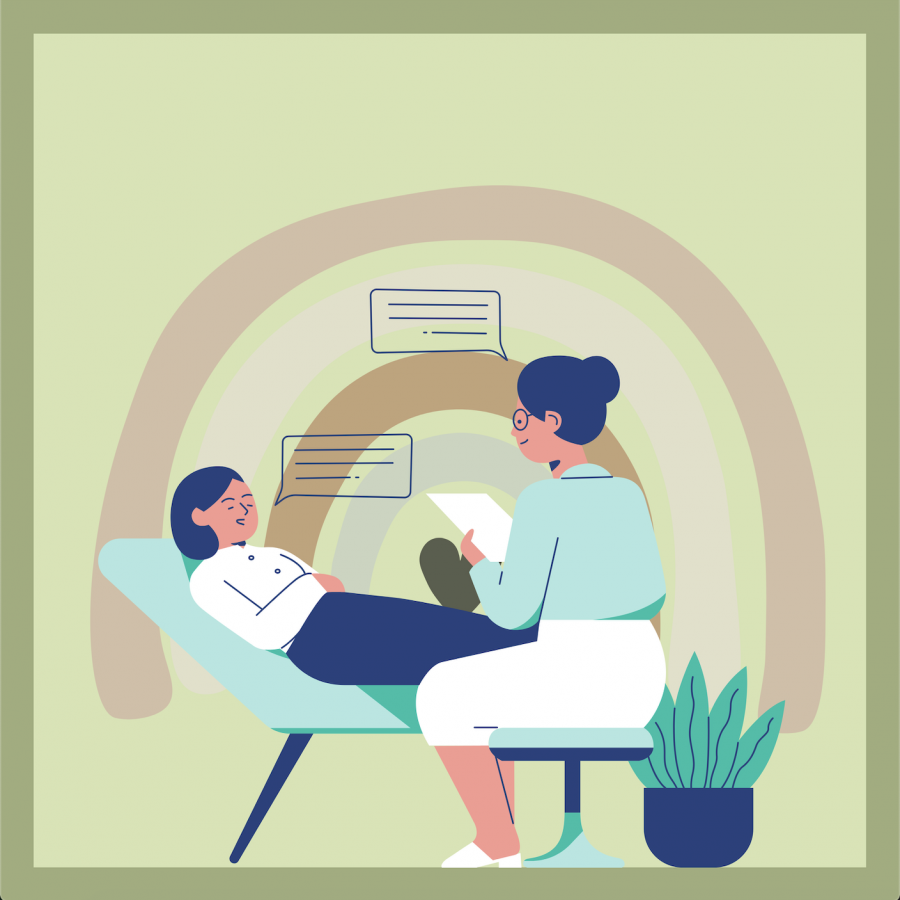As students, we have a lot on our plates.
We attend classes everyday and try to retain information that is thrown at us. We attempt to make new friends and have a social life while trying to maintain schoolwork. We go home to messes left by our roommates and parents who won’t stop asking about post-college plans. This doesn’t even take into consideration how we are still living through a global pandemic and our concerns surrounding a possible second lockdown.
The real question is, “How are you dealing with all the challenges of life?”
Do you meditate? Do you drown out life by listening to Olivia Rodrigo? Or do you choose to ignore the stress and just try to take it day by day?
Although some of these coping mechanisms can be effective as a short term fix, the truth is this: we need to find long term mechanisms to help cope with the daily struggles we face as a result of school and the future.
A positive, long-term way to deal with these struggles is therapy.
When a lot of people hear the word therapy, they begin to cringe.
Why would I need therapy? I’m not broken. I’m perfectly sane. However, over the years we have learned therapy is for everyone, especially students who have so much going on in their lives.
From schoolwork, to homelife, to friendships, we are at a constant battle of trying to keep everything together. But there isn’t a rule that says we must have everything together. It’s okay to ask for help, because you don’t have to go through all your struggles alone.
For most people when they imagine therapy, they think of a scene they show in some movies. The one where the distraught patient lies down on the couch and tells an old man how they feel, but in reality, there are so many different types of therapy.
Here at San Diego State, we offer many different alternatives to “stereotypical” therapy. From therapy dogs to group sessions to just calling to “Talk It Out,” there are various ways to get help. As well as the counseling center, clubs on campus like Active Minds, a student-led organization whose mission is to change the conversation about mental health, are here to improve your well being.
So, why is therapy beneficial for everyone?
Therapy is a place where you’ll get unbiased advice from a medical professional. Their job is to help you figure out how to cope with the daily struggles of life.
According to The American Psychological Association, “A good friend can listen, but a psychologist has the skills and professional training to help you learn to manage when you’re overwhelmed.”
Trained therapists can not only give you insight about yourself but tools that can help you cope when you are feeling anxious or sad.
There are many misconceptions that in order to go to therapy you need to have a big issue going on in your life. Although those people do benefit from therapy, any issues are worth talking through. The issues can be as little as anxiety for a big test or as little as feeling excluded from a friend group — they’re both worthy to talk to someone about.
During college, we emphasize doing well in our classes or maintaining our physical bodies but we seem to lack the emphasis on mental health.
Throughout the COVID-19 pandemic, we’ve seen firsthand how draining it can be to keep all of your emotions in and not having a safe space to express your feelings. Let therapy become that safe space for you. Maintaining your mental health is vital in creating a positive and thriving atmosphere as a student.
Don’t be afraid to use the free therapy options available on campus and find ways to become happier and healthier this semester. You can follow counseling and psychological services on Instagram @sdsucounseling or visit their website at sdsu.edu/cps.
Sierra Stallworth is a junior studying journalism media studies. Follow her on Twitter @SierraSimoneS.







